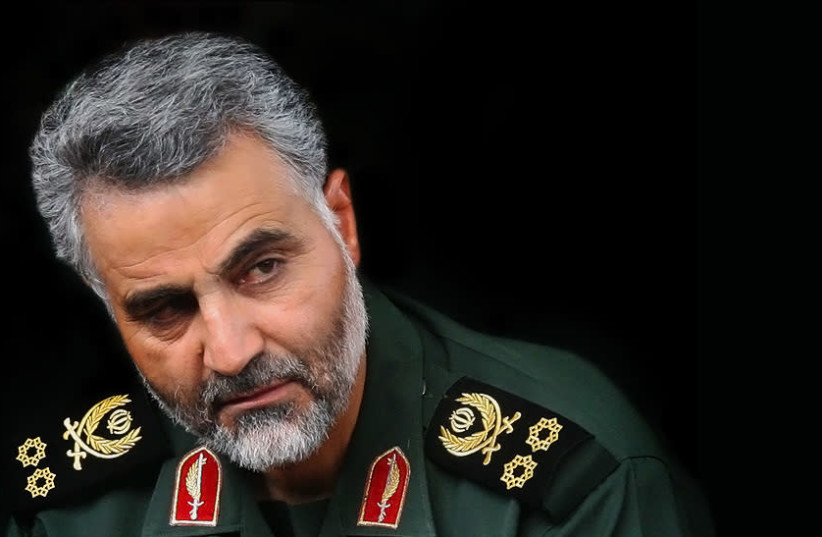Iran’s pro-government media, especially those linked to the Islamic Revolutionary Guard Corps (IRGC), have been pushing headlines about Qasem Soleimani, the former head of the Quds Force who was killed by a US drone in January 2020. According to one outlet, it was a “big blow” to Palestinian terror groups.
The anniversary of his death has prompted a lot of content about him, providing a glimpse into how Iran and its allies in the region view the loss of this key commander. It appears his killing has left – and continues to leave – a large hole in Iran’s ability to empower its allies and proxies in the Middle East.
Soleimani's death was a major blow to Iran
Soleimani’s death was a major blow to Iran, even though the regime has tried to pretend that it can continue its operations like before. Soleimani, along with Abu Mahdi al-Muhandis, the head of Kataib Hezbollah in Iraq, were both killed in the strike. Other key figures in the Iranian nexus have also been killed over the years, such as Imad Mughniyeh, who was killed in 2008.
Now, Iran’s Tasnim media revealed in an interview published Wednesday with Khaled al-Batsh – a member of Palestinian Islamic Jihad – that the death of Soleimani negatively impacted his terror group.

He told the outlet that the killing of Soleimani was “very heavy and huge for us and for the Palestinians, because this action meant the declaration of war by America and the corrupt Donald Trump.” Batsh is quoted as saying that while Soleimani frequently spoke about the fact that he could be “martyred,” the killing was nevertheless “a big blow for us, because he is the main supporter and defender and the closest and most knowledgeable person to the nature of the battle with the enemy.”
According to the report, the IRGC Quds Force helped Islamic Jihad target Tel Aviv with missiles. Batsh credits the Iranian Fajr missile with aiding the Palestinians in increasing their abilities to threaten Israel.
In a second interview, also published Wednesday, a member of Hezbollah recounted knowing Soleimani.
He spoke about Soleimani’s modesty and willingness to serve in the field and meet with commanders and live the life of a common soldier. This effusive praise paints a picture of Soleimani as a commander who was unique and who inspired a great deal of respect among those in the ranks of the pro-Iran axis across the region.
Part of this may be propaganda, but there appears to be a part that is a very accurate depiction of Soleimani’s qualities; these are qualities that cannot be replaced.
Iran relies on, and invests in, its human relationships on the ground with proxies. It doesn’t rely just on weapons or money like some regimes in the region who just throw money at something and hope it will work itself out; Tehran prefers to build up networks over decades, with key leaders who are cogs in the Iranian proxy forces. This means that if one of these leaders is removed, there isn’t an instant replacement. These aren’t mercenaries, or gangs, they are a complex sectarian mafia of key dons who are important to the overall survival of the Iranian octopus.
The plethora of articles published throughout the week paint a picture of Soleimani as a key figure and show how his death continues to have an impact on Iran’s allies in Iraq, Iran’s operations in Syria and its support for Hezbollah, Hamas and PIJ. This affects Iran’s operations as well, encouraging it to take more risks and also leading to failures and miscalculation.
